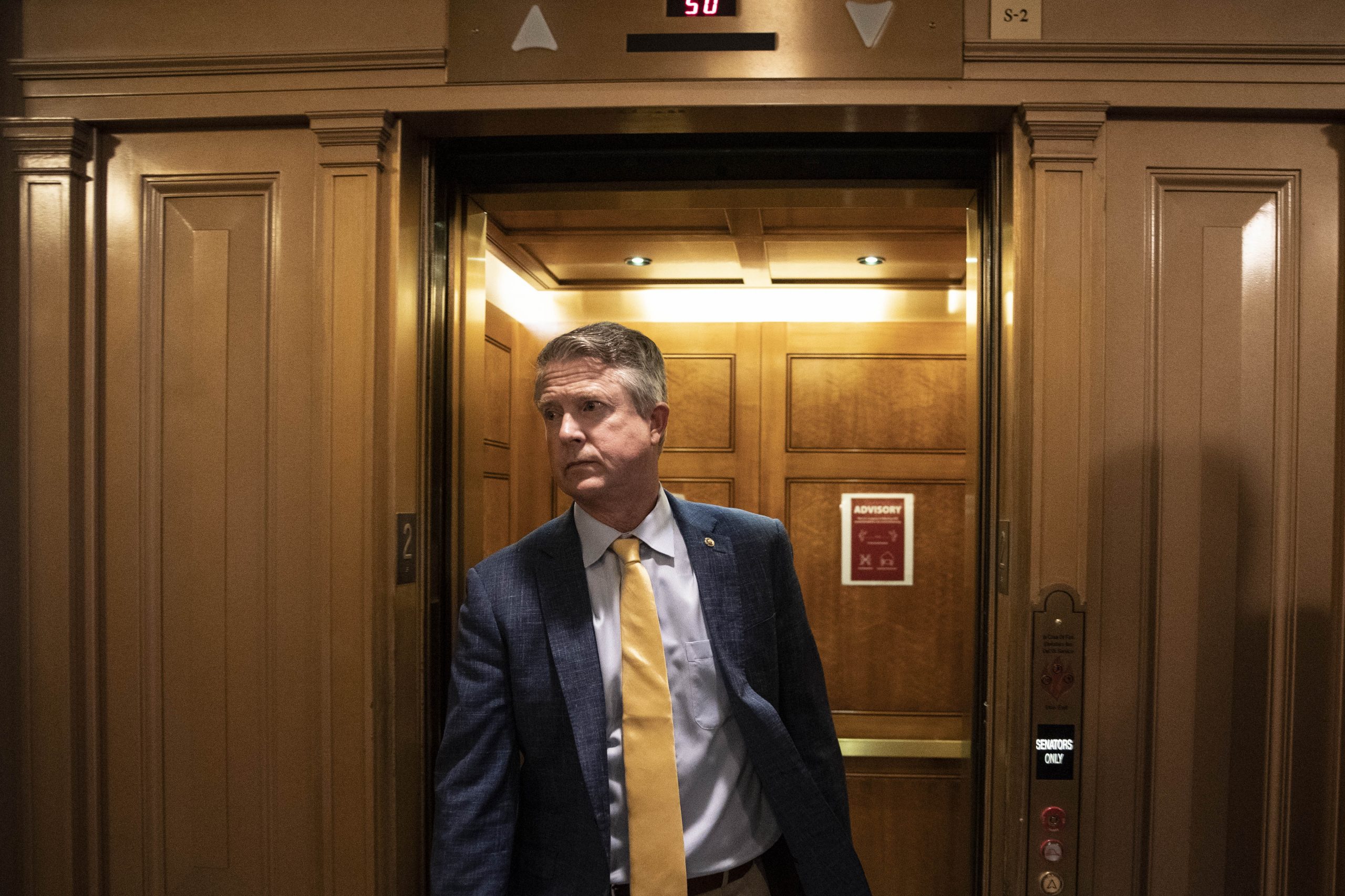Sen. Roger Marshall (R-Kan.) reportedly gave truckers in the “People’s Convoy” a tour of the U.S. Capitol.
According to Politico, a senior congressional aide told the Department of Justice about the tour out of concern that it could assist protesters in gaining entry into the building.
The outlet noted the Capitol has been closed to the public since the COVID-19 outbreak in 2020. Still, the Senate has been allowed to provide the public with small tours in a limited area on the Senate side since last December.
Marshall’s office told Politico the tour complied with the exception.
“Hard-working Kansans — especially those who have driven over 1,000 miles to get to D.C. — deserve access to their U.S. Capitol,” his office said in a statement, as Politico reported.
After Sen. Roger Marshall gave truckers a special tour of the Capitol, a senior congressional aide alerted the DOJ out of concern that the tour could help the protesters plan an entry into the building.https://t.co/RtI3Zx7eCX
— POLITICO (@politico) March 16, 2022
According to the group’s website, members are demanding “the declaration of national emergency concerning the COVID-19 pandemic be lifted immediately and our cherished constitution reign supreme.”
The group has received support from politicians, including Sen. Ted Cruz (R-Texas). The senator tweeted a video of himself riding with the “People’s Convoy” near Washington, D.C.
“Thank you to every trucker who is standing up for freedom for every man, woman, and child in America!,” Cruz tweeted.
Speaking to a crowd, Cruz added, “What the men and women want here is for the government to leave you the hell alone.”
Earlier this month, members of the group met with both Cruz and Sen. Ron Johnson (R-Wis.).
“These are people that are fighting for freedom. It’s just that simple,” Johnson said. “We’ve already seen tears here. I didn’t expect that, it doesn’t surprise me at all.”
White House Press Secretary Jen Psaki previously said the Biden administration had also “been monitoring this closely.” She explained efforts to prepare for potential disruptions include “enhanced intelligence sharing, a critical incident response plan for the US Capitol, a regional security assessment, (and) a simulation experiment that developed data-driven recommendations to bolster regional security.”

























 Continue with Google
Continue with Google